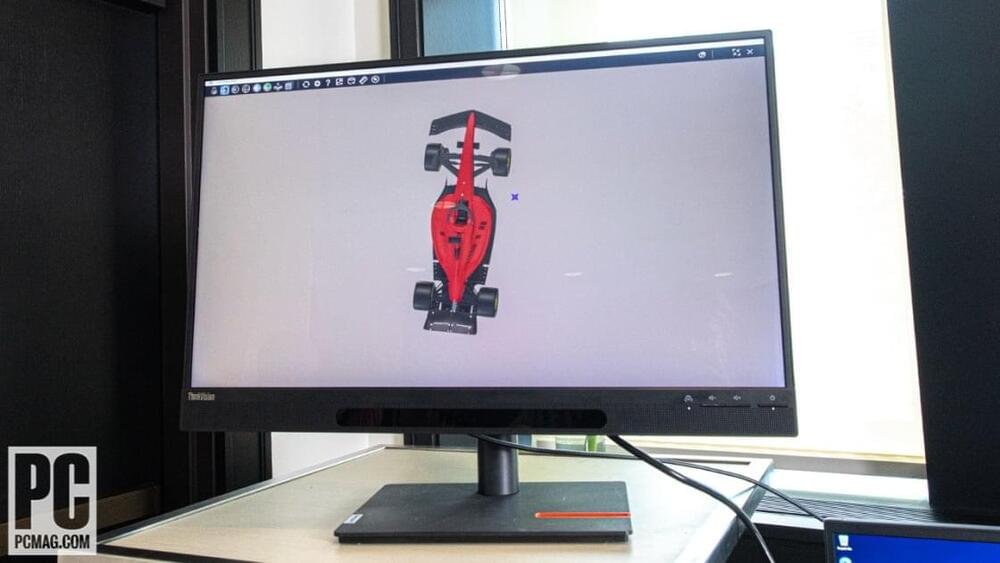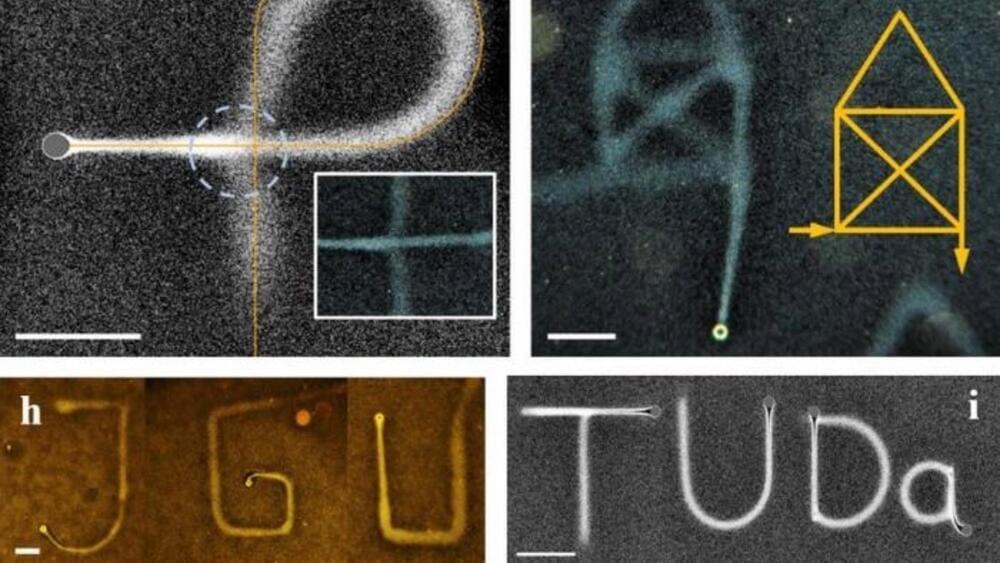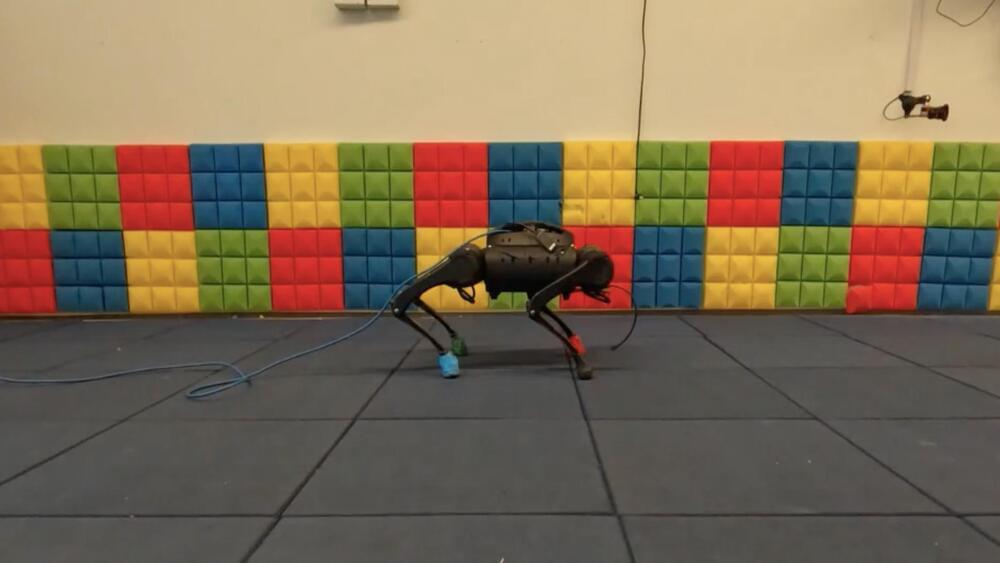Look, ma, no 3D glasses! Check out our first impressions of Lenovo’s glasses-free 3D monitor for content creators, debuting at IFA.



The U.S. Department of the Interior has announced its approval of the Revolution Wind project. Located off the coast of Rhode Island, it will supply 704 megawatts (MW) of clean energy, more than 16 times the current offshore wind capacity of the United States.
Revolution Wind. A simulated view of the project from Nomans Land, Massachusetts. From BOEM planning document.
Currently, the United States has only a small fraction of the world’s offshore wind power. Its first commercial offshore wind farm, near Block Island in the Atlantic, only began operation in 2016, with a nameplate capacity of 30 megawatts (MW). Since then, it has added just 12 MW, for a total of 42 MW.

To explore the association between a chemical’s structure and its odour, Wiltschko and his team at Osmo designed a type of artificial intelligence (AI) system called a neural network that can assign one or more of 55 descriptive words, such as fishy or winey, to an odorant. The team directed the AI to describe the aroma of roughly 5,000 odorants. The AI also analysed each odorant’s chemical structure to determine the relationship between structure and aroma.
The system identified around 250 correlations between specific patterns in a chemical’s structure with a particular smell. The researchers combined these correlations into a principal odour map (POM) that the AI could consult when asked to predict a new molecule’s scent.
To test the POM against human noses, the researchers trained 15 volunteers to associate specific smells with the same set of descriptive words used by the AI. Next, the authors collected hundreds of odorants that don’t exist in nature but are familiar enough for people to describe. They asked the human volunteers to describe 323 of them and asked the AI to predict each new molecule’s scent on the basis of its chemical structure. The AI’s guess tended to be very close to the average response given by the humans — often closer than any individual’s guess.
X, formerly known as Twitter, will begin collecting users’ biometric data, according to its new privacy policy that was first spotted by Bloomberg. The policy also says the company wants to collect users’ job and education history. The policy page indicates that the change will go into effect on September 29.
“Based on your consent, we may collect and use your biometric information for safety, security, and identification purposes,” the updated policy reads. Although X hasn’t specified what it means by biometric information, it is usually used to describe a person’s physical characteristics, such as their face or fingerprints. X also hasn’t provided any details about how it plans to collect it.
The company told Bloomberg that the biometrics are for premium users and will give them the option to submit their government ID and an image in order to add a verification layer. Biometric data may be extracted from both the ID and image for matching purposes, Bloomberg reports.

Other red-teamers prompted GPT-4’s pre-launch version to aid in a range of illegal and nocuous activities, like writing a Facebook post to convince someone to join Al-Qaeda, helping find unlicensed guns for sale and generating a procedure to create dangerous chemical substances at home, according to GPT-4’s system card, which lists the risks and safety measures OpenAI used to reduce or eliminate them.
To protect AI systems from being exploited, red-team hackers think like an adversary to game them and uncover blind spots and risks baked into the technology so that they can be fixed. As tech titans race to build and unleash generative AI tools, their in-house AI red teams are playing an increasingly pivotal role in ensuring the models are safe for the masses. Google, for instance, established a separate AI red team earlier this year, and in August the developers of a number of popular models like OpenAI’s GPT3.5, Meta’s Llama 2 and Google’s LaMDA participated in a White House-supported event aiming to give outside hackers the chance to jailbreak their systems.
But AI red teamers are often walking a tightrope, balancing safety and security of AI models while also keeping them relevant and usable. Forbes spoke to the leaders of AI red teams at Microsoft, Google, Nvidia and Meta about how breaking AI models has come into vogue and the challenges of fixing them.

Fake images and misinformation in the age of AI are growing. Even in 2019, a Pew Research Center study found that 61% of Americans said it is too much to ask of the average American to be able to recognize altered videos and images. And that was before generative AI tools became widely available to the public.
AdobeADBE +0.5% shared August 2023 statistics on the number of AI-generated images created with Adobe Firefly reaching one billion, only three months after it launched in March 2023.
In response to the increasing use of AI images, Google Deep Mind announced a beta version of SynthID. The tool will watermark and identify AI-generated images by embedding a digital watermark directly into the pixels of an image that will be imperceptible to the human eye but detectable for identification.
Kris Bondi, CEO and founder of Mimoto, a proactive detection and response cybersecurity company, said that while Google’s SynthID is a starting place, the problem of deep fakes will not be fixed by a single solution.
“People forget that bad actors are also in business. Their tactics and technologies continuously evolve, become available to more bad actors, and the cost of their techniques, such as deep fakes, comes down,” said Bondi.

In the water, the small beads create no swirling effect, allowing the drawn patterns to stay in place.
Writing is a time-honored cultural practice that traces its origins to ancient times when our ancestors inscribed signs and symbols onto stone slabs. As a result, writing on any solid object has long been common practice.
But if you’ve ever tried writing in water or other liquid substances, you may have found it rather difficult. A new study reveals that might change with the use of a specialized technique.

SayTap uses ‘foot contact patterns’ to achieve diverse locomotion patterns in a quadrupedal robot.
We have seen robot dogs perform some insane acrobats. They can lift heavy things, run alongside humans, work in dangerous construction sites, and even overshadow the showstopper at the Paris fashion show. One YouTuber even entered its robot dog in a dog show for real canines.
And now Google really wants you to have a robot dog. That’s why researchers at its AI arm, DeepMind, have proposed a large language model (LLM) prompt design called SayTap, which uses ‘foot contact patterns’ to achieve diverse locomotion patterns in a quadrupedal robot. Foot contact pattern is the sequence and manner in which a four-legged agent places its feet on the ground while moving.
Called MARAFY, the project will house 130,000 residents in the northern region of Jeddah.
A new development project financed by the Public Investment Fund (PIF) of Saudi Arabia features a 6.8 mile (11 km) long and 328 feet (100 m) wide artificial canal, a press release from the real estate developer ROSHN said.
The world’s largest oil supplier, Saudi Arabia, is preparing for the new world order, where fossil fuels no longer fuel its economy. The country has undertaken ambitious projects such as NEOM and the LINE, which do not meet the norms of construction designs today.

Meta has launched a new privacy setting that allows users to request the company not to use their data from public or licensed sources for training its generative AI models.
Meta, the company that owns Facebook and Instagram, has launched a new option for users who do not want their data to be used for training its artificial intelligence (AI) models. The new privacy setting, announced on Thursday, allows users to submit requests to access, modify, or delete any personal information that Meta has collected from public or licensed sources for generative AI model training.
Derick Hudson/iStock.
Generative AI